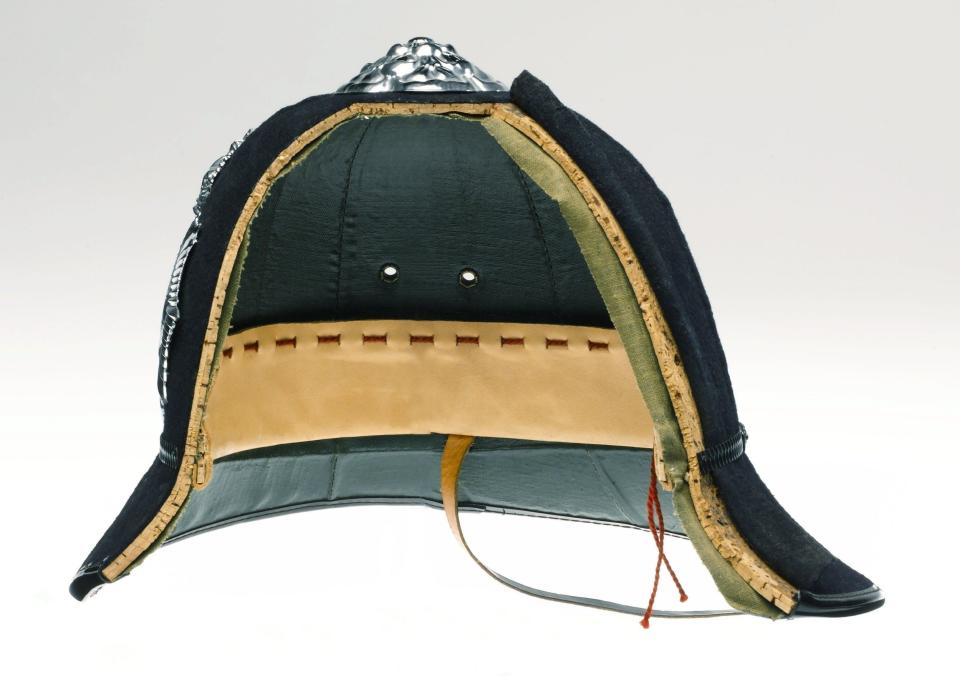Letters: Britain shouldn’t stoop to the EU’s level in the vaccine dispute

SIR – While the EU is behaving with its usual arrogance, ineptitude and lack of good faith over vaccine supplies, two wrongs do not make a right.
Once the most vulnerable groups in Britain have been vaccinated, we should be the better person and accept a reduction in contracted supplies from AstraZeneca. It is surely better if the vaccine is used for the vulnerable in other countries rather than heathy UK residents under the age of 60.
As a relatively healthy, 52-year-old I would prefer “my” future dose to go to someone elsewhere in greater need.
Dr Glyn Jones
Grayshott, Hampshire
SIR – The UK showed great faith in the Oxford/AstraZeneca vaccine by buying a large number of doses early. The EU could have done the same, were it not mired in bureaucracy.
I applaud Pascal Soriot, the CEO of AstraZeneca, for explaining the position so clearly, and for his company’s efforts to provide as many doses as possible despite the three-month delay in the EU signing a deal. Eurocrats must find it galling to see the independent UK doing so well.
Jonathan Mann
Gunnislake, Cornwall
SIR – I suspect that if the boot were on the other foot, we would be told that we had made our own bed in choosing Brexit and would have to wait.
Heather Paget-Brown
Plaxtol, Kent
Watch: EU demands AstraZeneca contract after delays
SIR – I am 70 and my husband (and carer) is 67. I’ve been booked in to have my vaccination in early February. I am disabled and shielding.
It is impossible to find out if my husband can have his at the same time. Our surgery cannot tell us, and neither could a person from the district council. We know others who have experienced similar problems. Why has this not been cleared up?
Jacqueline Scoulding
Cheddar, Somerset
SIR – Despite being a healthy 77-year-old, I was invited at short notice to have the Pfizer vaccine, which I duly did on January 8 – well ahead of most people over the age of 80. It was all very efficient.
On the 20th I received a text from my GP, offering me a jab on the 22nd, which I declined for obvious reasons.
Then, on Thursday I received a letter from the NHS – dated nine days earlier – offering me the vaccine yet again. When I called the hotline, it took a while for me to establish that I was not trying to get the second jab but was calling out of politeness.
Mike Kearney
Milton Keynes, Buckinghamshire
SIR – My father, who is 101 years old and housebound, has still not heard when he will receive his vaccine. He is apparently “on the list” to receive a visit from a district nurse.
I wonder how many other Second World War veterans are in the same position.
Terry Benson
London SW10
Watch: Gove confident UK vaccine supply will be delivered
In thrall to the state
SIR – Janet Daley puts her finger precisely on the issue of our time.
The question is not about the efficacy of this or that lockdown policy. It is about whether people’s fear has led them to value safety above all else – and to turn to the state to deliver it.
I think this has been a process: our reaction to Covid is the culmination of a relatively short period in which people have become accustomed to demanding that the state keep them from harm. In the beginning, we had 9/11 and the fear of terror; in 2008 it was the fear of destitution arising from the financial meltdown; and now Covid has reawakened our dread of contagion. Far from reluctantly accepting the present restrictions, we expect more stringent ones.
Margaret Thatcher’s work in rolling back the power of the state has been largely undone. We are in thrall to it.
Gordon Bonnyman
Frant, East Sussex
Carved in memory
SIR – Christopher Pelly’s letter (January 24) evoked an early childhood memory regarding Grinling Gibbons.
I recall seeing a copy of The Carved Cartoon – hardback, bound in green-grey cloth – on my parents’ bookcase. They were born in Deptford, south-east London, during the First World War, and as a young child in the early Fifties I was taken to visit my paternal grandfather at his home in Evelyn Street (named after the 17th-century diarist, John). Before reaching the house, however, we had to cross a side road: Grinling Gibbons Place.
There was not a carving to be seen, but I do remember a forge with a blacksmith at his anvil. South-east London was insalubrious then, but I loved the history which connected me to such illustrious people as Evelyn and Gibbons. Over the course of my life I have visited many properties which contain his carvings; their beauty never fails to warm my heart.
Delia Hearmon
Grantham, Lincolnshire
SIR – The Carved Cartoon was read to my year at school in the early Sixties.
Years later, having searched in second-hand bookshops for a copy, I found one in a motorway branch of McDonald’s, where it was part of the decoration. I bought it from the surprised assistant for 20p.
Gail Mooney
Coggeshall, Essex
SIR – I was told that, if Gibbons had been paid for his work, his signature pea pod was open; if not, it was closed.
Eleanor Saunders
Chessington, Surrey
Demolition dog
SIR – Your report on the naming of pet dogs reminded me of the arrival of our lurcher-cross puppy, who dashed excitedly around the living room, knocking from the coffee table a china tea-set with his tail before diving (accidentally) into the garden fish pond. My father, who was visiting, said: “That’s not a dog. It’s a tank.”
We called him Sherman.
Joanna Barnes
Christchurch, Dorset
SIR – We have always named our pets after shipping regions and coastal stations used in the Shipping Forecast.
We have had Tyne, Lundy, Biscay (dogs) and Fisher, Dover, Bridlington (cats). No Dogger or German Bight yet.
I’m not sure what this says about us. We live many miles from the sea.
Adrianne Alun-Jones
Stratford-upon-Avon, Warwickshire
Unfair road schemes
SIR – Your Leading Article (January 24) rightly criticises the Government’s support for road schemes that benefit walkers and cyclists at the expense of motorists.
Sheffield City Council has gone one worse, rushing out plans to close swathes of the city centre to buses as well as cars. This is alarming for those of us with limited mobility who depend on public transport. It will also be disastrous for city-centre retailers, hospitality providers, entertainment venues and other services that rely on our business.
The required “consultation” was confined to an online questionnaire on an obscure website for a few weeks over Christmas and the New Year, and may well have been missed by many of those who will be most seriously disadvantaged.
Frances Soar
Sheffield, South Yorkshire
Bird-hostile energy
SIR – Jim White (Letters, January 24), highlights the problems that wind farms present to migrating birds. However, this is not the only type of “green” energy that is harmful to wildlife.
Solar farms, another intermittent form of generation, are proliferating across the UK. Countryside and farmland covered in panels can no longer sustain animal and bird populations. These devices are as damaging as the new coal plant proposed in Cumbria – just in a different way.
Roger Gentry
Weavering, Kent
Don’t feed the foxes
SIR – Feeding urban foxes, as Corina Poore says we should (Letters, January 24), will turn them from predators and scavengers into beggars.
Furthermore, leaving food out for them will most certainly encourage rats. It is not, as Ms Poore suggests, a question of one breed of vermin over the other.
Wendy Farrington
Ivinghoe, Buckinghamshire
SIR – The foxes that foul our garden prefer fast food leftovers and food waste from bins to the effort of chasing and killing rats.
In addition, since the rats have free run of the sewer and drainage systems, they have little to fear from foxes around here.
Bernard Kerrison
London SW4
Wanted: an inside track for budding detectives

SIR – John Kenny (Letters, January 24), writing about police and detective training, needs to catch up.
The police service is now recruiting people with suitable qualifications directly to the rank of superintendent. Neither this, nor a revival of the Trenchard scheme, will solve the shortage of detectives.
In the past, detectives were selected from uniformed officers who had shown a degree of suitability for the role. They received comprehensive training, and were valued for their specialist skills. However, successive regimes have eroded the status and skills of the detective, partly due to resentment over their so-called promotion, and also to save money on training.
Introducing direct entrants at inspector rank will not address the shortfall. The success of this approach for superintendents has yet to be proved.
As for Mr Kenny’s point about chief officers leaving early, I would suggest that this is more to do with the over-promotion of officers due to their academic background.
Det Ch Insp Philip H Adwick (retd)
Caunton, Nottinghamshire
A roadworthy plan to remember the bravest
SIR – I was heartened by the proposal to name roads after those who have won the Victoria Cross and George Cross, and by the support this has received from the communities and culture secretaries.
The Government should also ensure that statues honouring holders of these awards – such as that of General Buller in Exeter – are protected from narrow-minded, anti-British councillors who would remove them. Before any such action, there must be informed consent from local residents, whose ancestors collectively paid for them.
Phil Coutie
Exeter, Devon
SIR – Halifax town council deserves recognition for its foresight in naming roads after military heroes.
On one new estate, three roads have been named after Battle of Britain pilots, including my father: Pilot Officer Kenneth Manger DFC.
Captain Nigel Manger RN (retd)
Forest Row, East Sussex
SIR – I live in Felix Baxter Drive. Felix was a VC holder, and on this estate there are several other roads named after VC holders, with details of how each was won. Future estates could celebrate heroes in other fields, too.
Maureen Purser
Kidderminster, Worcestershire
SIR – Among the 82 men from our village who died in the First World War, and the 20 who died in the Second World War, we don’t have a VC or GC holder. But we do have John Hobbs MC – and our parish council has named a new close after him.
John Bryant
Toddington, Bedfordshire

 Yahoo News
Yahoo News 
